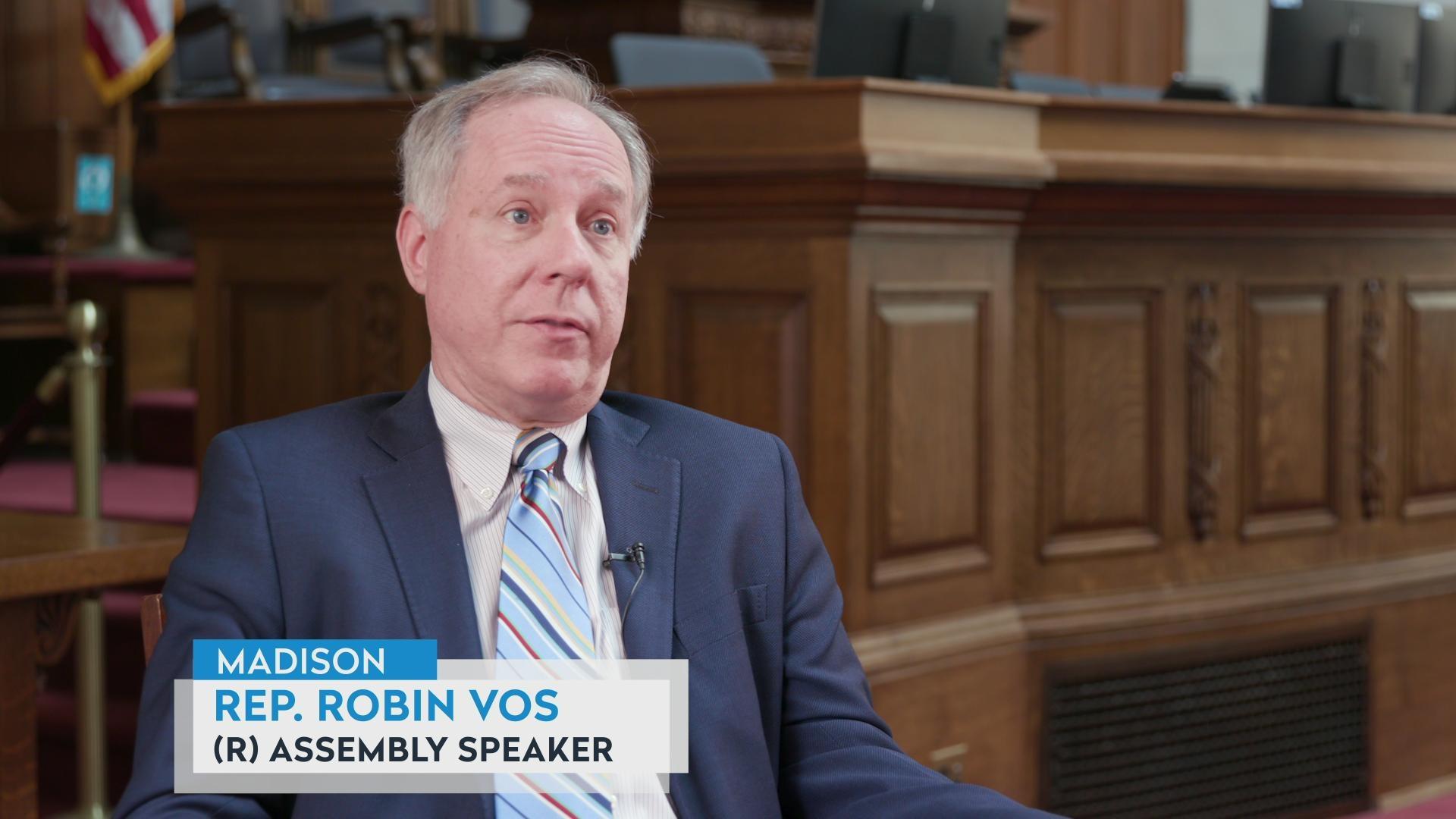Frederica Freyberg:
New long-form reporting from the Wisconsin Center for Investigative Journalism looks at a proposal to make it easier in the state to expunge some nonviolent criminal records. In tonight’s inside look, proponents of a bipartisan legislative bill say such a law change would help people with past records for such things as marijuana possession get jobs or professional licenses, for example. Legal Action of Wisconsin says marijuana expungements could be especially important for those who were convicted decades ago, when first-time even minor possession was often charged as a felony. Here to talk with this issue, Susan Lund of Legal Action of Wisconsin. She joins us from Milwaukee. Thanks for being here.
Susan Lund:
Thanks for having me.
Frederica Freyberg:
How hard is it currently in Wisconsin to get such criminal records expunged?
Susan Lund:
Well, people call Legal Action every day seeking access to expungement. And when we take those calls, oftentimes they are trying to move forward, right, to have access to education, safe and stable housing, finding family-sustaining work. And what we have to tell a lot of them is that they don’t qualify to petition for expungement because of two main aspects of our current law. The first one is that you have to have been under the age of 25 at the time of the commission of the offense to qualify to petition for expungement. And the second aspect is a pretty unusual procedural requirement that the individual has to have expungement granted at the time of sentencing in order to qualify. So that is very limiting.
Frederica Freyberg:
Yeah. Both those rules seem unusual to me, but, you know, who knows what was going on when they wrote those laws. But what does it mean for a record to be expunged?
Susan Lund:
The practical impact of having a record expunged would mean that the court removes access, public access to that file, in the courthouse and also takes it down from the free and easily searchable court records database online.
Frederica Freyberg:
And presumably employers and landlords and others are accessing that CCAP, as it’s known, those online records available to the public, and finding these criminal records of these people?
Susan Lund:
Yes. The free, searchable court records online in CCAP has been a real game-changer in Wisconsin. It has really enhanced the stigmatizing impact of a criminal conviction because now it’s nearly universal for prospective employers or prospective landlords to do some sort of court record search before they will extend a job offer or housing opportunity.
Frederica Freyberg:
According to Wisconsin Center for Investigative Journalism reporting, arrests for marijuana are the number one drug offense in Wisconsin, affecting they say, nearly 20,000 people in 2018 alone. So in your experiences, is this the kind of case that is most often brought to your office?
Susan Lund:
Folks bring a variety of low level cases to our office seeking expungement, a lot of nonviolent drug possession cases, some public benefits over payments cases, a variety of cases that are impacting their ability to find housing, educational opportunities and employment.
Frederica Freyberg:
Do you have a particular case of one of your clients — of course, not naming anyone, but that stands out, of an experience where it just seemed as though this process really hurt their business going forward?
Susan Lund:
Well, one that comes to mind is just last week an individual called our office seeking access to expungement because of a nonviolent conviction on their record from the ’80s. So they were calling because they’d served their sentence and they’d paid all their court fees and they hadn’t thought about this case in decades, but just this month they had applied for a job and been turned down based on it. So I easily pulled the record of that case up on online and I saw what they were talking about. So that’s just something that has come into our office in the last month that sticks with me.
Frederica Freyberg:
The Wisconsin Policy Forum says that more than 80,000 cases could be eligible for expungement under the proposed law change. What are the significant changes under the bill that would broaden the ability for expungement to that extent?
Susan Lund:
Sure. A couple of the aspects of the proposal is it removes the age requirement, right? So the person would no longer have to be under the age of 25 to qualify to ask a judge for expungement. The second thing is it does remove this unusual procedural requirement that a judge would have to order expungement at the time of sentencing, which, again, is just — it’s the punishment phase of the case and judges are understandably reluctant to order expungement at that time, and so that limiting aspect of the current law is removed in the proposal. A third thing is that the proposal makes this retroactive, so it would mean that people who were previously sentenced under the old expungement law could now have a process to petition for expungement. And a fourth component that’s important is the proposal makes clear that it would now be unlawful employment discrimination to deny an individual a job based on an expunged conviction.
Frederica Freyberg:
All right. We will watch the progress of that legislative bill. Susan Lund, thanks very much for explaining it to us.
Susan Lund:
Thank you.
Frederica Freyberg:
You can see the full Wisconsin Center for Investigative Journalism report by going to WisconsinWatch.org.
Search Episodes
News Stories from PBS Wisconsin

Donate to sign up. Activate and sign in to Passport. It's that easy to help PBS Wisconsin serve your community through media that educates, inspires, and entertains.
Make your membership gift today
Only for new users: Activate Passport using your code or email address
Already a member?
Look up my account
Need some help? Go to FAQ or visit PBS Passport Help
Need help accessing PBS Wisconsin anywhere?

Online Access | Platform & Device Access | Cable or Satellite Access | Over-The-Air Access
Visit Access Guide
Need help accessing PBS Wisconsin anywhere?

Visit Our
Live TV Access Guide
Online AccessPlatform & Device Access
Cable or Satellite Access
Over-The-Air Access
Visit Access Guide
 Passport
Passport


















Follow Us